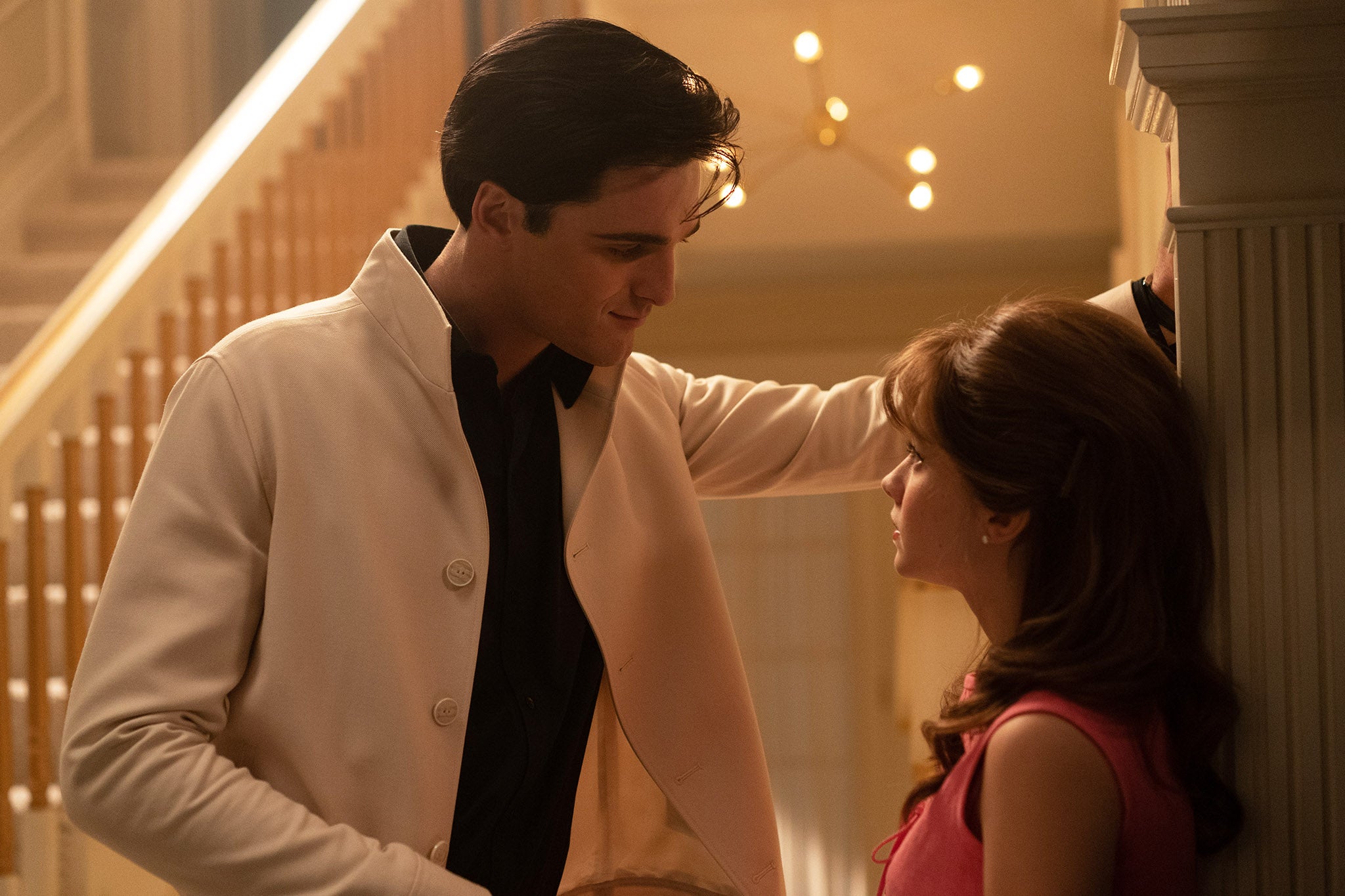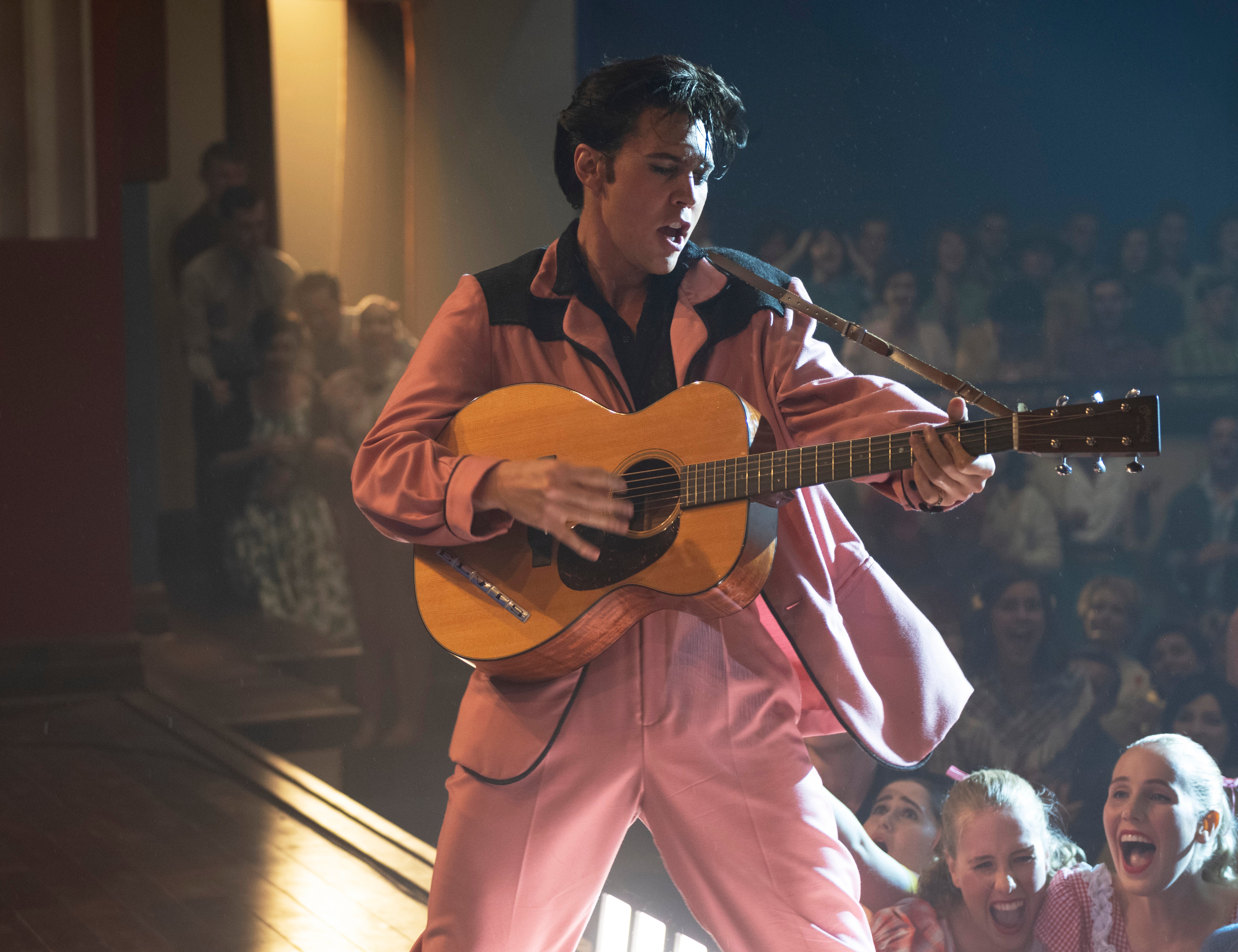Priscilla is the big screen takedown of Elvis that he’s had coming for decades
Sofia Coppola’s new film has no truck with the musical genius of the King of Rock’n’Roll, writes Louis Chilton. Instead, it gives voice to the woman who suffered his demons and shines the spotlight on the truly nasty side of Elvis – brutish, predatory, and deeply insincere


If you come at the king, you’d better not miss. It’s common wisdom – Machiavelli by way of The Wire’s Omar Little. And yet coming at the king is exactly what Sofia Coppola’s new biopic Priscilla attempts. Not just any old monarch, but The King, Elvis Presley himself, played in the film with oily disregard by Euphoria’s Jacob Elordi. Elvis isn’t the focus of the film, which instead fixes its perspective to the young Priscilla Beaulieu, whom the singer woos, gaslights, mistreats and eventually marries, having met her as a 14-year-old.
In the film, Priscilla is portrayed – blisteringly well – by Bad Times at the El Royale’s Cailee Spaeny. We meet her as a schoolgirl and doe-eyed ingénue, who encounters an already famous Elvis when he was 24. Silent scenes of classroom tedium are juxtaposed with Presley’s gold-dipped courtship; once she moves out to Graceland to be with him, the fairytale romance dissolves into stagnant, moneyed isolation. It might be a stretch to say that Priscilla depicts Elvis as a predator – though the fact of Priscilla’s age is glaring and constant – but the film damns him in every other way. He is manipulative, unfaithful, deeply insincere – a man lost in the noise of his own celebrity.
In some ways, Priscilla can be seen as a corrective to last year’s Elvis, the flashy, indulgent funfair-ride Presley biopic directed by Baz Luhrmann. Elvis was interested in the myth of its subject: the hip shakes, the screams, the scheming Colonel behind his downfall. Priscilla, on the other hand, is interested in the person behind the myth. Elvis is ostensibly a supporting player, but the film is trapped, along with Priscilla, in his Jupiterian orbit.
There is, inevitably, controversy to be found in depicting such a popular and broadly liked figure as damningly as Coppola does. Priscilla is adapted faithfully from Priscilla Presley’s 1985 memoir Elvis and Me, and was given her endorsement. Lisa Marie Presley, her daughter with the late rock’n’roll star, has been among those objecting to the film, writing in an email published by Variety: “My father only comes across as a predator and manipulative. [...] I don’t read this and see my mother’s perspective of my father. I read this and see your shockingly vengeful and contemptuous perspective and I don’t understand why?” Despite these objections, the story Priscilla is telling is Priscilla’s, and her approval is perhaps the most significant consideration, if not for the film’s absolute truth, then for the personal truth it attempts to convey. But there are other potential issues.
On paper, the complete absence of Elvis’s music from the soundtrack is a problem. The lack of musical authenticity has sunk biopics such as the 2017 Morrissey film England Is Mine, or the turgid Bowie 2020 bio Stardust. In Priscilla, the lack of Elvis’s music – his beautiful, sonorous singing voice – deprives the audience of his talent. We don’t get to see the artist, just the man. This was a matter of legal necessity of course: Priscilla was unable to secure the copyright to his back catalogue. But this ends up working in service of the film’s pointed narrative.
In the very final scene of the film, Priscilla features an almighty needle drop – “I Will Always Love You” by Dolly Parton. It’s a loaded choice, both in its lyrics and backstory: the real Elvis vied to record the song in 1974 but Parton refused, not wanting to yield a 50 per cent share of the publishing rights. But it neatly sums up the film’s whole approach to Elvis. Priscilla is not interested in the King so much as the woman who suffered his demons. The woman who – eventually – got away.

Elvis is as iconic a figure as has ever existed in pop culture. There’s a whole Wikipedia page simply listing the films about him – everything from 1988’s Heartbreak Hotel to 2015’s Elvis & Nixon. Inevitability, Priscilla will be discussed through this lens, through its jaundiced, unsympathetic interpretation of the man. But this is not some holistic biography. The film doesn’t even want to be about him. It’s right there in the title.
‘Priscilla’ is in cinemas



Join our commenting forum
Join thought-provoking conversations, follow other Independent readers and see their replies
Comments